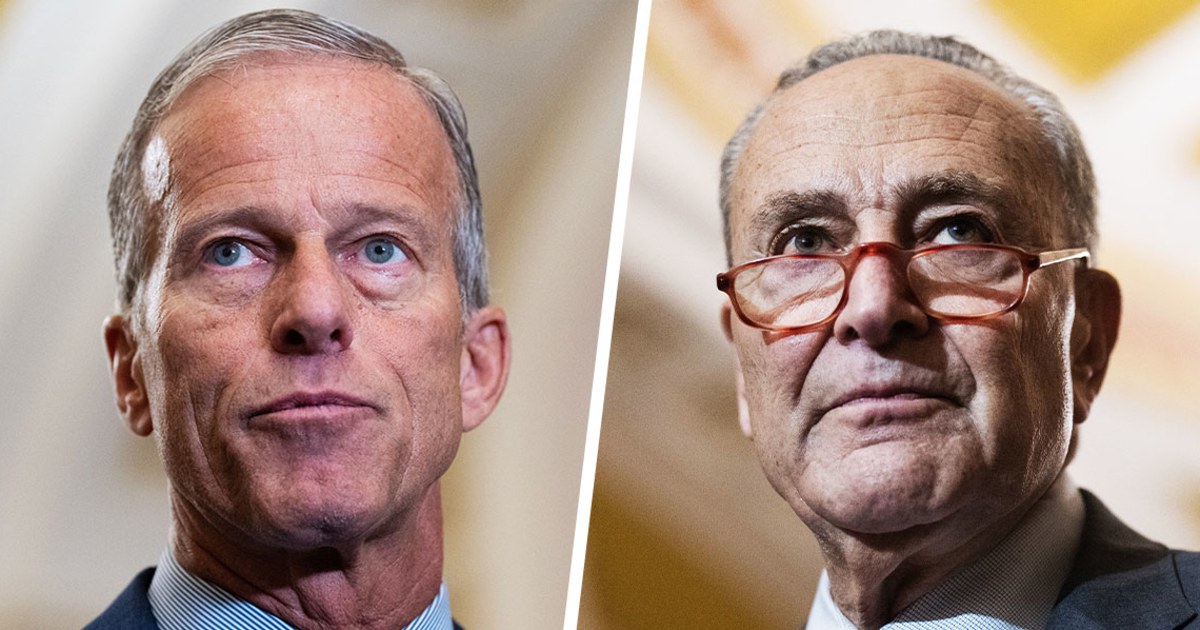Democrats have only hardened their position as the government shutdown enters its 23rd day, leaving Republican majorities in Congress with few answers — and many criticisms.
For the 12th time, Senate Democrats blocked the Republican Party’s government funding legislation this week without a single senator switching his or her vote.
Just three Democratic caucus members voted for the bill: John Fetterman, D-Pa.; Catherine Cortez Masto, D-Nev.; and Angus King, I-Maine. That means Republicans are still five votes short of the 60-vote threshold to ensure passage of the bill, just as they have been since before the government shut down 23 days ago.
Democratic voters had pressured their party to take a more confrontational posture toward Trump in the shutdown battle. The new stance may be paying off with the party’s base.



Who would throw it away? Most likely the states, possibly the military, and least likely but possible, a popular movement of the people.
In the event of the collapse of the federal government the states still have their individual governments. It’d be painful everywhere and especially painful in most red states but we wouldn’t necessarily have a total political collapse.
I do agree that it’s extremely unlikely to happen.
The military certainly has no desire to try to run a country this large and complicated, that only works out in smaller, less developed nations and even then they usually hand it over as fast as possible to a new government. I don’t see a populist uprising on either side of politics actually forming any kind of movement with power either, people are too comfortable and too checked-out from politics broadly. Sure, we see huge no-kings type protests, but these are more like weekend activities than real action, a demonstration, not a revolution.
People want narratives more than they want to actually set fire to buildings and break a system that has been keeping them comfortable. They want to participate in something that they think will make their lives immediately better if they’re going to expend this kind of energy and risk their entire life and job.
More realistically, we will see a gradual increase in redistricting fights until representation in congress and senate becomes just for show and ceremony, meaning that if every state can just make up the value of their electorate maps, there’s no point in having federal representation and some states will gradually start to renegotiate what they’re contributing in federal taxes.
(This will lead to election reform, but not in a good way.)
From there, you will see states that make more money like California and New York start forming their own partnerships with neighboring states and negotiating international trade without the US government. These alliances will go on to start forming new agreements and documents between each other, designating regions by setting their own tax and trade rules, and eventually these regions or alliances of states will basically draft their own constitutions as they start to build their own military forces for defense and political capital, likely using existing local bases and forces which will be slowly re-incorporated into the new government systems.
These things happen painfully slow, or blessedly slow depending on how fast you want to see the states crumble.
You would almost certainly see some of the states refederalizing very quickly if that happened.